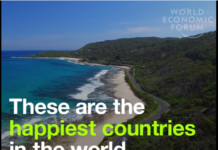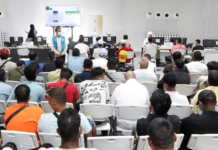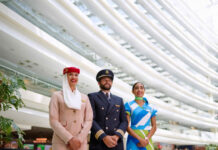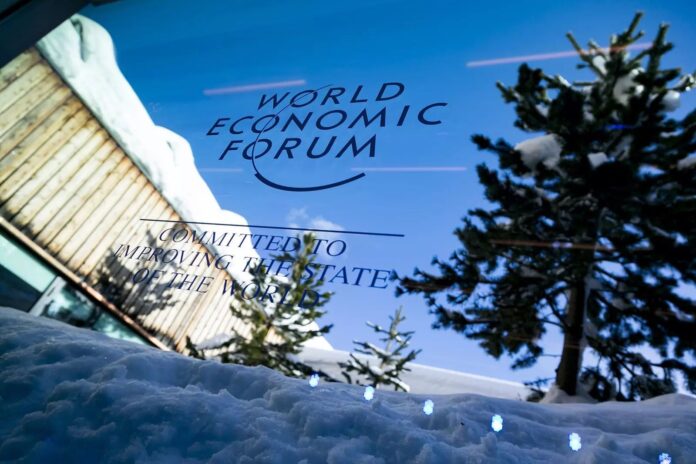The World Economic Forum’s annual meeting will have over 300 sessions and five thematic priorities, including industries in the intelligent age
By Anthon Garcia
The World Economic Forum (WEF)’s annual meeting, also known as Davos — after the Swiss town where it takes place — is slated for January 20 to 24 under the theme “Collaboration for the Intelligent Age.”
Every year, the event convenes government, business, and civil society leaders worldwide to tackle the most pressing matters in various regions and across the globe. These include geopolitical shocks, living standards, and energy transition. This year, it will host over 300 sessions, with five interconnected thematic priorities: Rebuilding trust, reimagining growth, investing in people, safeguarding the planet, and industries in the intelligent age.
Important dialogues
Annually, Davos, the highest town in Europe, hosts a global gathering where several pivotal dialogues, including important private conversations, take place. The event itself was established over 50 years ago. Until now, it continues to embody the spirit of the Swiss town — which is an attitude of openness and cooperation that is core to the mission of the WEF.
WEF is headquartered in Geneva, also in Switzerland. A core mission of the global non-profit organization is to foster collaboration between the public and private sectors. The Davos Manifesto, which was first created in 1973 and renewed in 2020, states that the WEF is formally guided by stakeholder capitalism. This approach emphasizes that corporations should create value for all stakeholders — shareholders, employees, society, and the planet — while committing to “improve the state of the world.”
Over the past decades, WEF’s annual meeting has become a crucial platform for tackling evolving challenges that the world faces. Every year, the agenda changes to zero in on the most pressing issues. Today, the program comprises over 300 sessions. Bringing the event’s reach to a wider audience, 200 of these sessions are live-streamed to a global audience.
Davos 2025: What to expect
Geo-economic uncertainty, trade tensions, cultural polarization, and climate anxiety. These are some of the most important concerns that the world experiences today, and Davos 2025 is taking place amid all these issues. But in the face of these challenges, the world sees promise, especially in the rapid development of AI, quantum computing, and biotech — all of which are expected to boost productivity and living standards.
Ultimately, navigating today’s landscape demands a more intensified collaboration. This is why this year, the meeting will revolve around the theme “Collaboration for the Intelligent Age.” This theme is inspired by Klaus Schwab’s belief that converging technologies are swiftly reshaping the world as we know it. These changes will push the world to an inflection point — “an era far beyond technology alone.”
Schwab is the founder of WEF. He currently serves as the chairman of the Board of Trustees.
Thematic priorities
At Davos 2025, attendees will tackle some of today’s biggest questions: What are the biggest questions for leaders as they grapple with the challenge of collaboration in an age of converging technologies and hyperintelligence? How can we avoid fragmentation and build a smarter future? How can innovation tackle crises like climate change and the misuse of technology? Will collective action and responsible leadership foster equality, sustainability, and collaboration rather than deepen existing divides?
The discussions in this year’s Davos will be organized under five key areas — the first of which is Reimagining Growth. Building more resilient economies entails reviving and even reimagining growth. In the upcoming gathering, there will be discussions on how to identify new sources of growth in the new global economy.
Industries in the Intelligent Age is another priority. As the world experiences major geo-economic and technological shifts, industries are pushed to innovate when it comes to their business strategies. In Davos 2025, global leaders will discuss how business leaders can strike a balance between short-term goals and long-term imperatives amid such transformations.
Under the thematic priority Investing in People, Davos 2025 will analyze how the public and private sectors can invest in human capital development and good jobs that contribute to the development of a modern and resilient society. This topic is more urgent than ever, considering that geoeconomic changes, the green transition, and technological advancements are impacting everything — from employment, skills, and wealth distribution to healthcare, education, and public services.
The fourth one is Safeguarding the Planet. Climate change and the environment have been a staple in WEF annual meeting discussions. Davos 2025 will be no different, as global figures will discuss how the world can catalyze energy, climate, and nature action through innovative partnerships, increased financing, and the deployment of frontier technologies.
Rebuilding Trust, the final thematic priority, is all about how societal divides and geopolitics have deepened over the past years. Additionally, policy is shifting toward protectionism, hampering both trade and investment. In the upcoming meeting, participants will answer this pressing question: How can stakeholders find new ways to collaborate on solutions both internationally and within societies?
Diverse attendance, global engagement
Davos boasts a roster of attendees that’s relevant and diverse. From heads of state and private-sector leaders to the leading voices from academia, the annual meeting is an ideal place to gain insights from a wide range of perspectives.
The attendees include politicians from across the political spectrum and the top minds from various areas of expertise. The event welcomes activists, artists, labor leaders, Indigenous community members, and prominent youth figures. In addition, leaders from civil society, labor, and media organizations as well as top thinkers are a staple in the annual meeting.
In last year’s edition, the attendees came from 125 countries, including several Forum communities. Chief executives and chairs of the Forum 1,000 Partner companies engaged in initiatives and communities, such as the International Business Council, Community of Chairpersons, and Industry Governors. The meeting also saw the participation of public figures from across the world, including G7 and G20 countries and heads of international organizations.
Other notable attendees included members of the Unicorn and Technology Pioneers communities, the Community of Global Shapers, the Forum of Young Global Leaders, and the Schwab Foundation for Social Entrepreneurship.
Aligned with the WEF’s Global Gender Gap Report introduced in 2005, Davos has also been at the forefront of promoting gender equality. This is why in recent years, more women have been participating in the event, constituting a quarter of attendees — a proportion notably higher than their representation among global or business leaders.
While Davos is an invitation-only event, the public can still watch and engage with the annual meeting through live-streamed sessions, social media, and virtual connections to Forum hubs, centers, and projects.
This year, WEF will bring Davos to a global audience through engaging and dynamic social media coverage. This includes live updates and sessions, in-depth interviews, and thought-provoking discussions. The annual meeting will showcase the key moments, ideas, and leaders shaping the future through its social media platforms. It will also upload live-streamed sessions and videos to its YouTube channel alongside articles and opinion pieces by participants on its website.
Beyond Davos
Various issues of global importance are in the spotlight during every Davos. Apart from discussions on such matters, the annual meeting also sees the unveiling of several partnerships, accords, and pledges. It’s also a platform where hundreds of initiatives are formed. Some remain managed by expert teams in-house, while others extend and grow beyond the scope of the forum.
For example, Gavi, the Vaccine Alliance, began as an idea to reverse declining immunization rates resulting from unaffordable vaccines. It was formed in 2000. Over two decades later, it has grown both in size and influence, becoming a global network responsible for vaccinating more than 50 percent of the world’s children.
Efforts like this prove that while what happens in Davos is important, it’s during the other 51 weeks of the year that the impact of the meeting and the WEF gathers momentum.







































